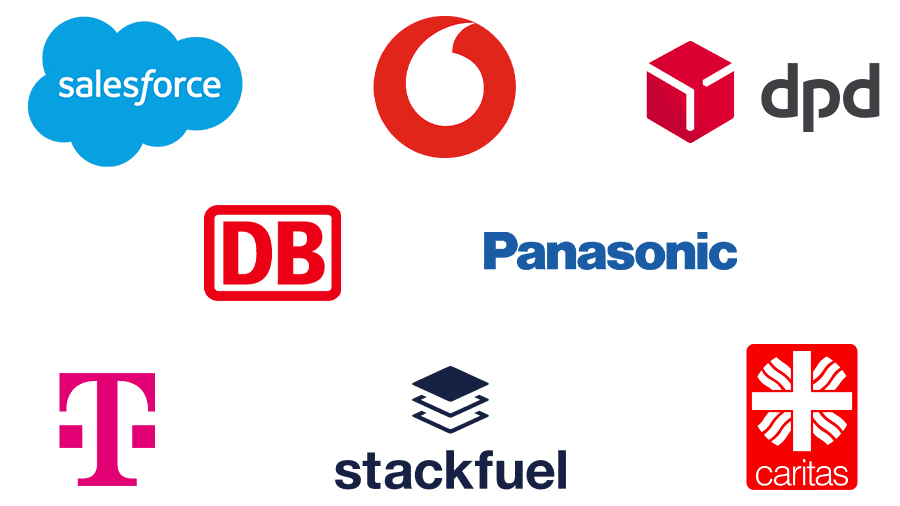
Financial Modeling
The Financial Modeling course is designed to equip learners with the skills and techniques necessary to build and analyze financial models using Excel. This course covers the foundational concepts of financial modeling, including forecasting, valuation, sensitivity analysis, and scenario planning. Participants will learn how to construct robust financial models to support investment decisions, business planning, and financial analysis.
Overview

Financial Modelling
Course Learning Objectives
The "Financial Modelling with Excel" course is designed to provide participants with the skills and techniques necessary to build and utilize financial models in Excel for business planning, investment analysis, and decision-making. The course covers the fundamental principles of financial modeling, including the creation of detailed financial statements, forecasting, valuation methods, and scenario analysis. Learners will gain hands-on experience in constructing robust financial models that can be used to evaluate business performance and make strategic financial decisions.
Course Learning Outcomes (CLOs) <>
Understanding Financial Modelling:
Understanding Financial Modelling:
Building Financial Statements:
Forecasting and Projections:
Valuation Techniques:
Conduct scenario analysis to evaluate the impact of different business scenarios on financial outcomes. Perform sensitivity analysis to identify key drivers and assess the risk in financial models.
Advanced Excel Functions for Financial Modelling:
Utilize advanced Excel functions and tools, such as nested IF statements, array formulas, and data tables, to enhance financial models. Implement error-checking and validation techniques to ensure model accuracy and reliability.
Student Learning Outcomes (SLOs): <>
Proficiency in Financial Statement Construction:
Proficiency in Financial Statement Construction:
Analytical Skills in Forecasting:
Valuation and Investment Analysis:
Scenario Planning and Risk Assessment:
Technical Expertise in Excel:
Effective Communication of Financial Insights:
By the end of the course, students will have the capability to construct sophisticated financial models that can support various business decisions, investment analyses, and strategic planning initiatives, thereby enhancing their proficiency in financial analysis and modeling using Excel.

Benefits
With AI, the world is your oyster! It is an emerging field, rapidly growing, ever evolving and watched with a keen eye by industries and markets globally. There are many benefits to an education in AI:
In demand Career
With a Bachelor in artificial intelligence you are equipped with in-demand skills in the rapidly growing field of AI. Knowledge of developing AI systems, data analysis and AI techniques makes you valuable across industries, right from healthcare, finance, tech and more. This degree prepares you for career that has multiple options for diversification. AI professionals include AI engineers, data scientists, machine learning specialists, AI consultants, researchers and more. AI is transformative technology that is revolutionising the world. With an education background in AI, you are set up in an in-demand career field with an exciting future ahead!
Innovation and advancement
Applied AI is all about finding solutions and using AI systems to make life simpler. Applied AI draws on its solid foundation in Computer Science to analyse and provide solutions for real world challenges. You are prepared to address complex problems and contribute meaningfully in domains like healthcare diagnostics, fraud detection, autonomous vehicles, personalised recommendations and more. Being able to apply AI techniques for solving tasks makes for an extremely rewarding and impactful job role!
Solving real world problems
AI aims to constantly bridge the gap between natural intelligence and machine learning - it is a field of cutting edge research, innovation and advancing technology. This makes it ever evolving, with new algorithms, models and techniques being developed. By studying AI at an undergraduate level, you gain a strong foundation in AI fundamentals that help you better understand the latest advancements. You step into a career that empowers you to push the boundaries of AI, contribute to research and development and drive innovation in the field.
100% International
Study at your own pace from anywhere in the world
Recommended by 96% of our graduates
According to our latest alumni survey
50,000+ students
enrolled in Germany’s largest university
Study contents
Contents
Studying Financial Modeling typically involves learning a set of skills and techniques aimed at building mathematical models to represent the financial performance and projections of a company or investment opportunity. Here’s an outline of the key study contents you might encounter in a comprehensive Financial Modeling course:
Foundation Concepts:
Excel Basics for Financial Modeling:
Financial Statement Analysis:
- Overview of the three main financial statements (Income Statement, Balance Sheet, Cash Flow Statement).
- Analyzing financial statements to assess company performance and financial health.
- Calculation and interpretation of key financial ratios (liquidity ratios, profitability ratios, leverage ratios).
- Using ratios to evaluate performance and make financial decisions.
Forecasting Techniques:
- Concepts of present value (PV), future value (FV), and net present value (NPV).
- Applying time value of money principles to financial decision-making.
- Projecting income statements, balance sheets, and cash flow statements.
- Incorporating historical data, growth assumptions, and macroeconomic factors into forecasts.
Valuation Methods:
Advanced Modeling Techniques:
Applications and Case Studies:
Practical Skills and Tools:
Resources for Learning: - Books: "Financial Modeling" by Simon Benninga, "Principles of Finance with Excel" by Simon Benninga. - Courses: Online platforms like Coursera, edX, and financial modeling training providers offer courses with practical exercises and case studies. - Software: Besides Excel, familiarity with specialized financial modeling software like Bloomberg Terminal, Capital IQ, or financial modeling add-ins can be advantageous in some settings. By mastering these study contents, individuals can develop robust financial modeling skills applicable across various industries, including finance, consulting, corporate finance, investment banking, and real estate.
Admission
Admissions Criteria
Careers
Start Your Career Now
Financial Analyst:
Financial analysts use financial modeling techniques to evaluate the performance of investments, assess financial statements, and make recommendations to businesses or clients regarding investment decisions.
Investment Banking Analyst:
In investment banking, financial modeling skills are essential for valuing companies, preparing financial projections, and structuring deals such as mergers and acquisitions (M&A), initial public offerings (IPOs), and corporate finance transactions.
Financial Planning and Analysis (FP&A) Analyst:
FP&A analysts create financial models to forecast future financial performance, analyze variances against budgets, and provide insights to support operational decision-making and strategic planning within organizations.
Consultant:
Management consultants and financial consultants often use financial modeling to analyze business processes, evaluate market opportunities, and advise clients on strategic decisions related to financial performance and profitability.
Student reviews
Coming Soon.
Tuition fees
All our study programmes include the following benefits
- Teaching and study material
- Marking of your end-of-module exams
- Monthly live and recorded tutorials
- Use of the online campus
- Individual study coaching
- Online exams
- Career coaching
- Learn English for free
Our global recognition

IU is recognised by WES Canada and U.S., which means your degree can be converted to points in the local system for purposes of immigration, work, or studies.

As the first EU institution in UNESCO's Global Education Coalition, IU is committed to ensuring accessible quality education to students in crisis worldwide through free online micro-credentials.
Our company partners

For over 20 years, IU has established partnerships with leading global companies. This offers you the chance to gain firsthand experience through internships and projects and allow us to adapt our learning content to the ever-evolving needs of the labour market. You'll benefit from an education designed to bridge the gap between theory and real-world practice, ensuring your readiness for your future career.
Recognition
Recognition of previous achievements
Have you already completed a training course, studied at a university or gained work experience? Have you completed a course or a learning path through EPIBM LinkedIn Learning, and earned a certificate? Then you have the opportunity to get your previous achievements recognised, and complete your studies at EPIBM sooner.

Save time:
Skip individual modules or whole semesters!
Even before you apply for a study programme, we’ll gladly check whether we can take your previous achievements into account: 100% online, no strings attached. Simply fill in our recognition application form, which you can find under the content section of each study programme's webpage, and upload it via our upload section. You can also e-mail it to us, or send it via post.
Send an email to [email protected] to find out which previous achievements you can get recognised. You can get your previous achievements recognised during your studies.
Recognition files
Autonomous vehicles developer
With AI, the world is your oyster! It is an emerging field, rapidly growing, ever evolving and watched with a keen eye by industries and markets globally. There are many benefits to an education in AI:
That’s why after graduating, you’ll be able to apply your professional skills and knowledge, and work for development teams at any sector you find appealing.


Augmented reality (AR/VR) developer
Virtual (or augmented) reality isn’t all just fun and games, as great and enjoyable as that aspect is. It can also be used for groundbreaking social and psychological research, defensive purposes and therapy.
With an Applied Artificial Intelligence degree from IU University of Applied Sciences, you can take part in this vital field of technological development, and work on a wide variety of interesting projects.
Change what the world thinks about the possibilities that AI offers, and make a real difference in people’s lives, while enjoying every step of the process.
F.A.Q
Frequently Asked Questions
You might also be interested in these study programmes
Accredited and certified













